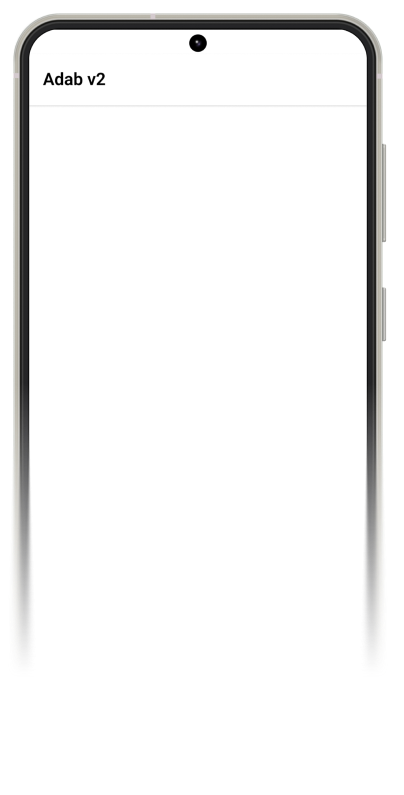

Empower The Deaf In The Classroom
ADAB v2: A Speech-to-Text App, initially built for deaf students in Bina Nusantara University
Summary
Location, Year
Indonesia, 2021
Industry
Education
Service
Mobile Application
The Struggles
In 2021, as COVID-19 cases surged across Indonesia, the government took decisive measures, including lockdown in various regions. These actions significantly impacted the education system, forcing all students to transition to remote learning.
While online education became a necessary solution during the pandemic, it also uncovered new challenges. Deaf students, in particular, faced unique yet significant barriers. Relying solely on visual materials left them struggling to keep up with lessons as crucial context and information is typically delivered through voice. This problem highlighted a pressing need for better solution in online education for deaf students.
This inspired the creation of the initial version of ADAB (Ayo Dengar Ayo Bicara), a web-based application designed to bridge the communication gap between deaf students and lecturers during online lessons. By converting spoken words into text in real time, ADAB empowers deaf students to actively engage with their lecturers, ensuring they don’t miss out on crucial information and can fully participate in the learning process.
ADAB v1, while being a step forward, faced significant challenges in terms of flexibility and scheduling. In ADAB v1, meetings had to be scheduled and set up by an admin before both students and lecturers could access the app. This rigid scheduling process created a major bottleneck: any error or miscommunication in scheduling meant that students wouldn’t be able to use the app for that particular lesson, cutting them off from the benefits of the app itself. This created an additional layer of frustration and inefficiency, which pinpoints the need for a more flexible and adaptive solution.
This is where ADAB v2 comes into place.
The Evolution
to ADAB v2





The limitations of ADAB v1 made it clear that a more dynamic and adaptive solution was needed. This starts the development of the second version of ADAB. One of SotaHouse’s core member took the lead in collaborating closely with Bina Nusantara University to create a more efficient, seamless version of the app. With ADAB v2, the focus shifted towards creating a platform that could easily adapt to real-time changes in the learning environment, ensuring the app is always usable in all circumstances.
Seamless
Speech-To-Text
ADAB v2 retains all the best features from the first version. This includes real-time speech-to-text. To achieve real-time and instant speech-to-text transcription, we implemented WebSockets; a cutting-edge technology that ensures a seamless, low-latency connection; on the back-end. This core feature of the app guarantees that the speech-to-text process is instant and uninterrupted, providing deaf students with an effortless learning experience.
Record - Edit - Saved!
To enhance learning experience, we introduced a “Transcript Editor” feature, allowing students to review and edit transcriptions from each meetings. This allows students to transform raw meeting notes into structured notes that can be understood easily.
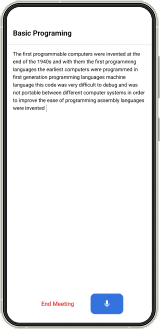
Automatic Transcript Generation
As soon as the meeting starts, the app starts transcribing every lectures or explanations in real time. Every word is captured instantly and stored securely on the server; and shown to the students in real time, ensuring no critical information is missed.
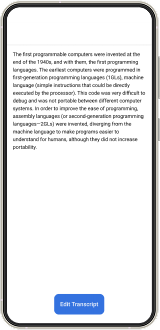
Edit Transcript When Finish
Once the meeting ends, students have the option to edit their transcriptions, allowing them to personalize and refine the notes to suit their needs. This flexibility ensures that each student can create their own notes, making learning even more effective.

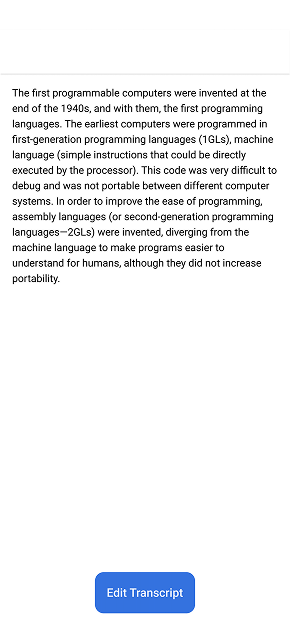
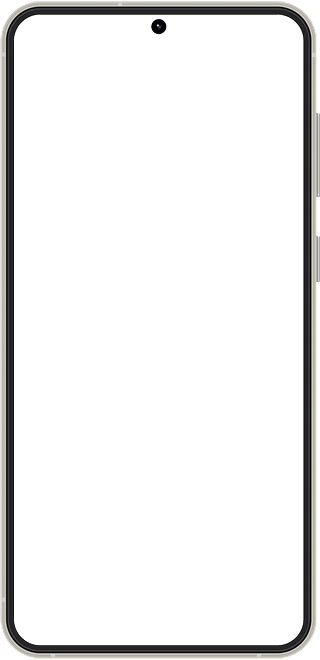
Every Meeting,
Scheduled and Organized
In addition to the transcript editor, we've integrated a powerful scheduling feature that ensures the app is accessible anywhere and anytime. This feature makes managing lessons and meetings effortless, allowing students to seamlessly plan and attend their sessions, inside and outside university.
Open Source
For All









We believe that flexibility drives innovation. That’s why ADAB v2 was built on open-source principles, enabling it to be easily adapted and integrated into custom backend systems through a modular interface. This open-source approach not only fosters collaboration but also ensures that the app can evolve and scale to meet different needs, empowering anyone to customize the solution as they see fit.
